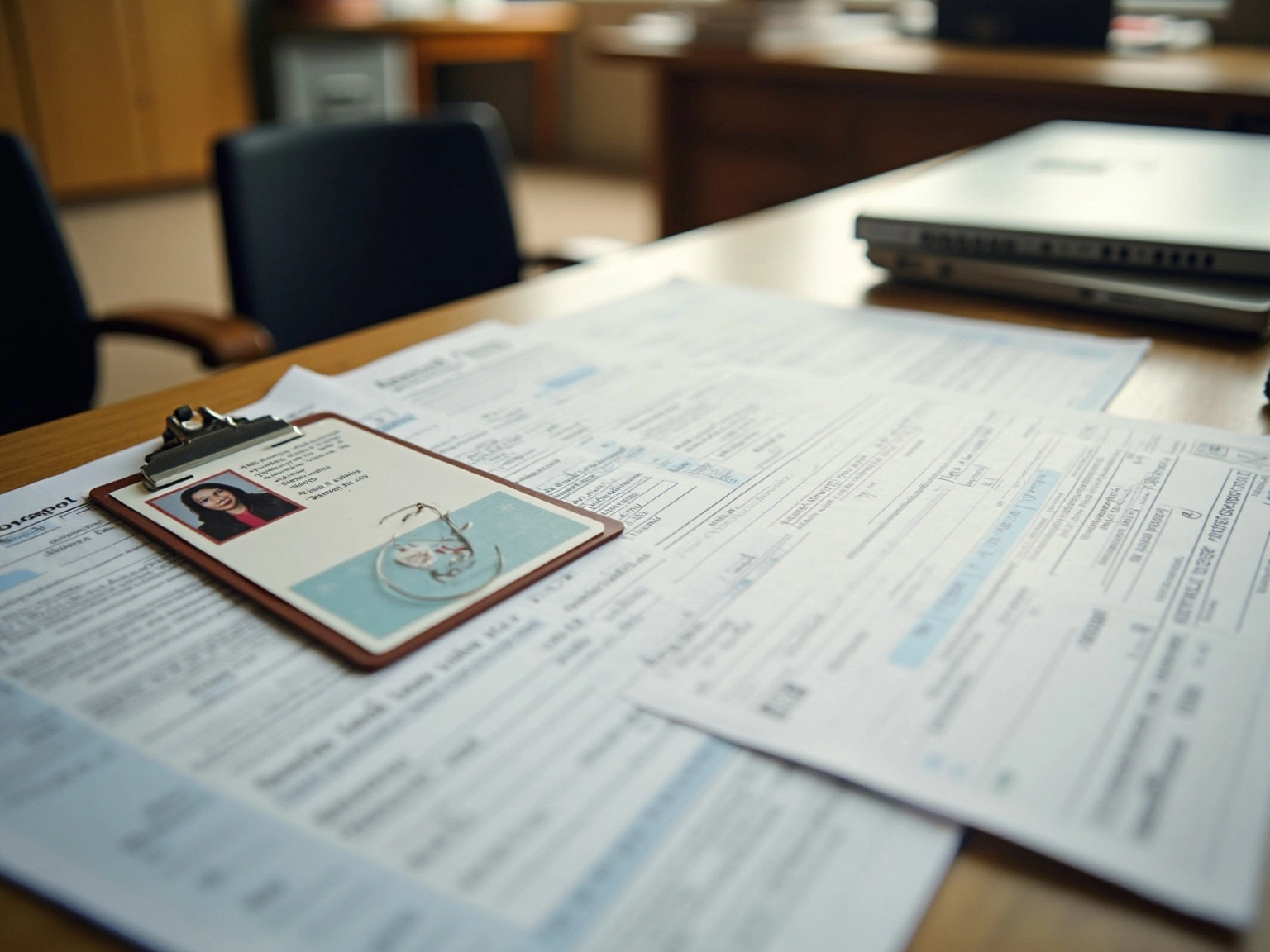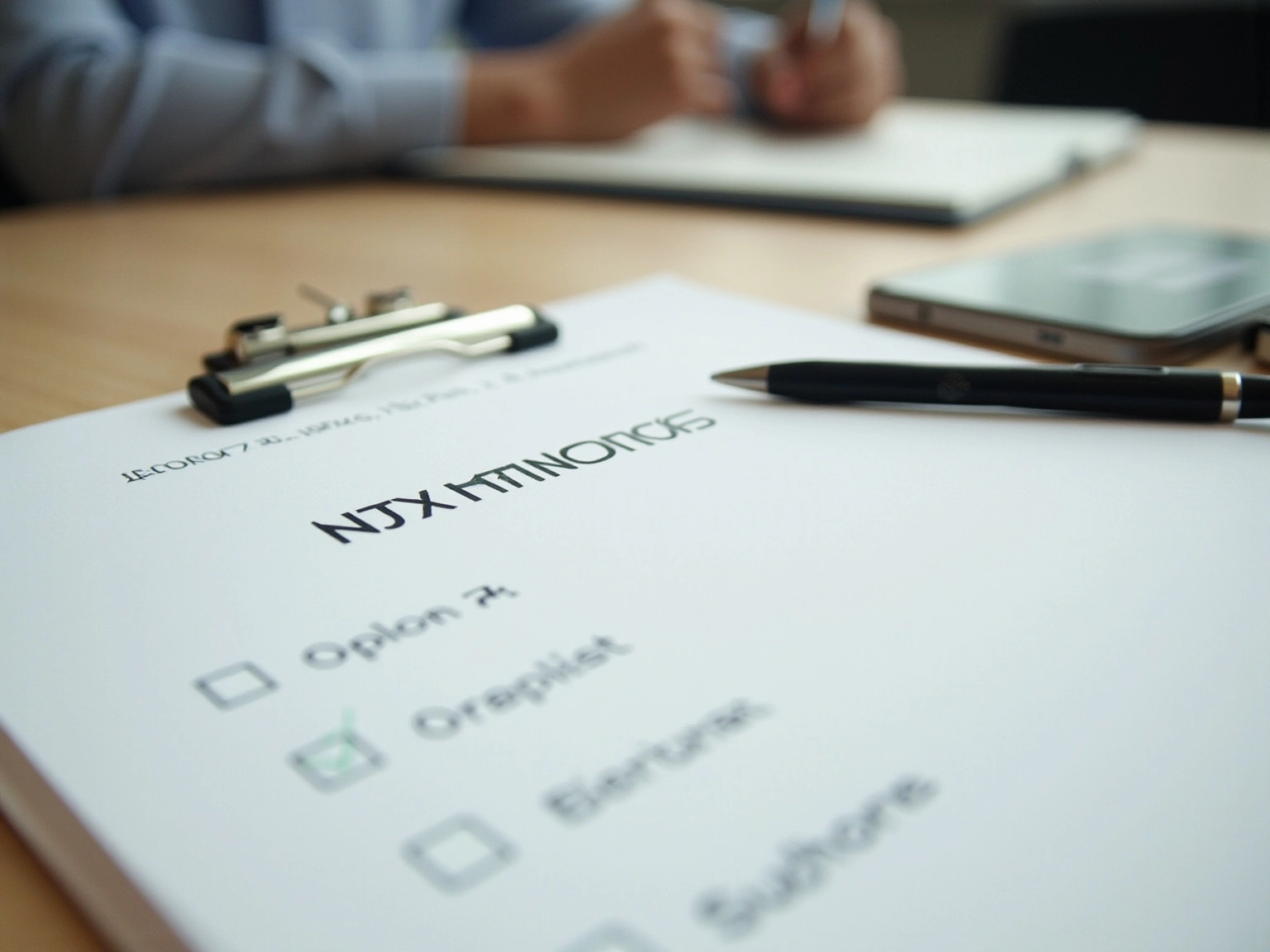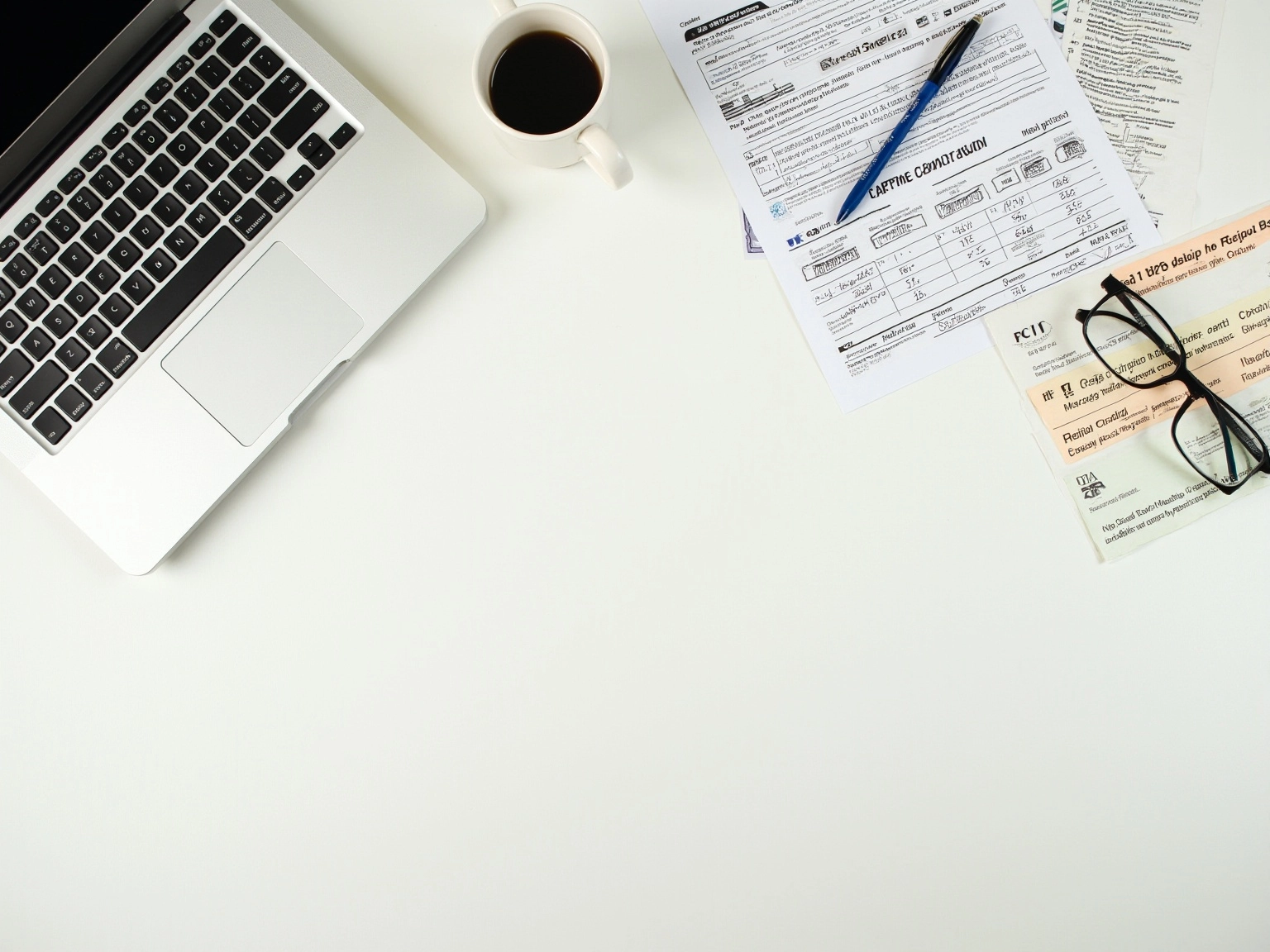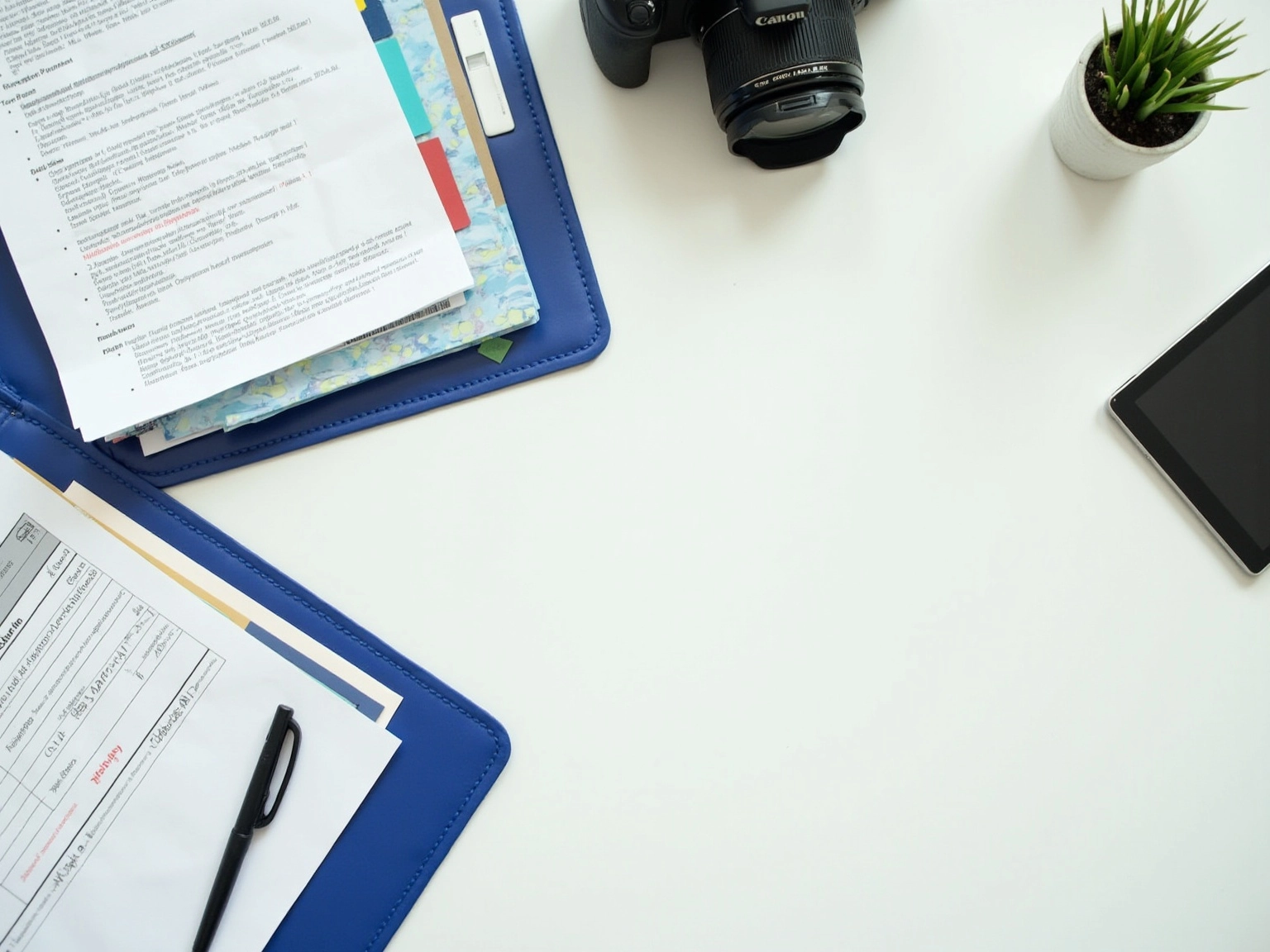Overview
To ensure a successful tax appointment, it is imperative that individuals bring essential documents, including:
- Identification
- Social Security Numbers
- Last year’s tax return
- Income statements (W-2 and 1099 forms)
- Records of potential deductions and credits
Thorough preparation is crucial; organizing these documents and utilizing tools such as checklists and automated reminders can significantly enhance the efficiency of the appointment and optimize tax outcomes. Substantial time savings reported by users of these strategies further underscore the importance of meticulous preparation.
Key Highlights:
- Bring essential identification, including a government-issued photo ID and Social Security Number (SSN) for yourself and dependents.
- Include last year’s tax return for context and to assist in the current filing process.
- Gather all income statements, such as W-2 forms and 1099 forms for accurate income reporting.
- Use tools like Glasscubes for automated reminders and improved document organization, which can lead to significant time savings.
- Prepare personal information, including full name, date of birth, current address, and bank account information, for efficient processing.
- Document all income sources, such as employment, self-employment, investment, and rental income, to ensure compliance and optimize tax outcomes.
- Collect records for potential deductions and credits, including medical expenses, charitable contributions, and education costs.
- Having previous tax returns available can provide valuable insights and help maximize current tax benefits.
- Organize documents into categories and use labelled folders to streamline the tax appointment process.
- Utilizing a checklist can enhance preparedness, with about 70% of taxpayers reporting feeling more ready for their appointments.
Introduction
In the realm of tax preparation, efficiency and organisation are pivotal, distinguishing a seamless appointment from a tumultuous experience. As tax season approaches, it becomes imperative for both taxpayers and accountants to grasp the essential documents required for filing. From personal identification to income statements and deductions, meticulous preparation can significantly streamline the process and elevate overall satisfaction. Given the escalating complexity of financial situations, utilising tools such as Glasscubes can further enhance communication and documentation collection, ultimately conserving invaluable time. This article serves as a comprehensive guide to the requisite paperwork and best practices, empowering individuals to navigate the intricacies of tax filing with unwavering confidence.
Essential Documents for Your Tax Appointment
Preparing for your tax appointment is essential for a seamless experience. Understanding what to bring by collecting the required paperwork in advance can significantly simplify the process. Here’s a comprehensive checklist of essential materials you should bring:
- Identification: A government-issued photo ID, such as a passport or driver’s licence, is crucial for verifying your identity.
- Social Security Number (SSN): It is important to have your SSN and those of your dependents readily available.
- Tax Identification Number (TIN): If applicable, include your TIN, especially for non-resident aliens or foreign nationals.
- Last Year’s Tax Return: Having your previous year’s tax return on hand can provide valuable context and assist in the current filing process.
- Income Statements: Gather all relevant income documentation, including W-2 forms from employers and 1099 forms for freelance work.
In the UK for 2025, the average number of materials required for tax filing has increased, reflecting the growing complexity of financial situations. Accountants have reported that efficient document collection can lead to a 40% increase in customer response rates, underscoring the importance of being well-prepared. Furthermore, utilising tools like Glasscubes can enhance this process by automating reminders, allowing for an unlimited number of customised notifications scheduled to meet specific deadlines.
This feature not only centralises user interactions but also addresses previous inefficiencies, such as long email trails that often resulted in lost information and duplicated requests. By personalising messages to indicate urgency, Glasscubes ensures that users are effectively reminded of critical deadlines. Industry experts observe that Glasscubes can save accountants substantial time—up to 288 hours in one tax season—and achieve a 50% reduction in response times, further demonstrating its effectiveness in enhancing communication.
The dedicated onboarding assistance offered by Glasscubes also helps accounting firms improve their information gathering and engagement, making the overall experience more efficient for both accountants and customers.
By knowing what to bring to your tax appointment and ensuring you have all essential documents ready, you not only facilitate a smoother appointment but also contribute to a more organised and efficient tax filing process.

Personal Information Required for Tax Filing
To ensure a smooth and efficient tax appointment, it is crucial to understand what to bring, including the following personal information:
- Full Name
- Date of Birth
- Social Security Numbers
- Current Address
- Bank Account Information
Accurate personal information is vital for ensuring that tax returns are processed smoothly and efficiently. In 2025, it is anticipated that the requirements for personal information will remain stable, underscoring the significance of preparation.
Accountants handling customer personal information have reported that having a thorough checklist can greatly enhance the process. Firms utilising tools like Glasscubes have experienced a 40% increase in customer response rates and a 50% reduction in response times, demonstrating the effectiveness of organised information gathering. The automated reminder feature of Glasscubes enables accountants to send tailored notifications, ensuring customers are well-prepared for their appointments. This enhancement not only boosts engagement but also reduces the likelihood of missing information.
As noted by Sophie Montgomery from TaxAssist Accountants, users have reported saving an impressive 288 hours in just one tax season, highlighting the time-saving benefits of using Glasscubes. This user-friendly interface aids accountants in managing customer information effectively while addressing common concerns about engagement during the transition to a new system. Expert insights suggest that maintaining accurate and complete personal information expedites the filing process and enhances overall customer satisfaction.
As you prepare for your tax appointment, consider utilising this personal information checklist to ensure you have everything needed for a successful meeting. This proactive approach can save time and reduce the stress often associated with tax season.

Documenting Your Income Sources
Accurate tax filing hinges on meticulous documentation of income sources. Accountants must guide their clients on what to bring to tax appointments to gather the necessary paperwork, ensuring compliance and optimising tax outcomes. Consider the following common income sources that should be documented:
-
Employment Income: Clients should provide W-2 forms from their employers, detailing earnings and taxes withheld. This record is crucial for verifying income and ensuring accurate tax calculations.
-
Self-Employment Income: For those engaged in freelance or contract work, 1099 forms are essential. Additionally, invoices and records of payments received should be collected to substantiate reported income.
-
Investment Income: Statements reflecting dividends, interest, and capital gains from stocks or bonds must be included. This information is vital for accurately reporting investment earnings and understanding tax implications.
-
Rental Income: Documentation of rental payments received, along with any related expenses, is necessary for landlords to report their income accurately and claim allowable deductions.
-
Other Income: Clients should also document any additional income sources, such as alimony or unemployment benefits, to ensure a comprehensive tax return.
In 2025, the average taxpayer in the UK reported multiple income sources, with studies indicating that taxpayers reported an average of 3.5 income sources. This emphasises the complexity of income records. Accountants should highlight the importance of thorough record-keeping; well-documented income can lead to more favourable tax outcomes. Expert opinions indicate that careful income records not only assist in compliance but also improve the efficiency of the tax preparation process, ultimately benefiting both accountants and their clients. As noted by Sophie Montgomery, a user of Glasscubes, proper records can lead to significant time savings, reporting an impressive 288 hours saved in just one tax season. Furthermore, utilising platforms like Glasscubes, which provide automated reminders, can streamline communication and ensure that all necessary materials are collected efficiently. These reminders can be tailored to indicate urgency and set for specific deadlines, enhancing engagement and optimising accounting workflows. For instance, an accountant may establish reminders for clients about what to bring to tax appointments, including their W-2 forms by a certain date, ensuring timely and organised record collection.

Gathering Deductions and Credits Documentation
To maximise your tax benefits, understanding what to bring to your tax appointment is essential. This includes comprehensive records for potential deductions and credits, which can significantly impact your overall tax liability. Here’s a detailed checklist of what to bring to your tax appointment, encompassing key items such as medical expenses: Collect receipts for all out-of-pocket medical expenses, including those for prescriptions, treatments, and any other healthcare-related costs. This documentation can support claims for deductions associated with medical care.
- Charitable Contributions: Ensure you have proof for donations made to qualified charities. This includes receipts, bank statements, and acknowledgment letters from the charities, which are crucial for verifying your contributions.
- Education Expenses: Keep records of tuition payments, student loan interest, and any related educational expenses. These files are vital for claiming education-related tax credits and deductions.
- Home Mortgage Interest: Obtain Form 1098 from your lender, detailing the interest paid on your mortgage. This form is necessary for claiming deductions on mortgage interest, a significant benefit for many homeowners.
- Child Care Expenses: Gather receipts for child care services that may qualify for tax credits. This encompasses payments made to daycare providers or other child care services, which can assist in decreasing your taxable income.
In 2025, it is anticipated that a considerable portion of taxpayers will miss potential deductions and credits due to insufficient records. Statistics indicate that only about 30% of taxpayers maximise their eligible deductions and credits, underscoring the importance of thorough preparation. By systematically gathering these documents, accountants can assist individuals in navigating the complexities of tax filings and advise them on what to bring to their tax appointment to ensure they fully leverage available benefits.
Furthermore, utilising tools such as Glasscubes can enhance this process, providing real-time visibility into request statuses and enabling the sending of unlimited automated reminders to keep users informed and engaged throughout the record-keeping process. These reminders can be tailored to convey greater urgency for upcoming deadlines, significantly streamlining workflows and enhancing customer satisfaction. As noted by Sophie Montgomery from TaxAssist Accountants, proper documentation and customer engagement can lead to significant time savings, reporting an impressive 288 hours saved in just one tax season.

Importance of Previous Tax Returns
Having your previous tax returns readily available is crucial for several compelling reasons:
- Contextual Information: Previous returns offer valuable insights into your financial history, highlighting any changes that could influence your current filing. This context is essential for accurately assessing your tax situation.
- Carryover Deductions: Certain deductions or credits may carry over from previous years, significantly impacting your current tax liability. If you have unused credits from previous years, having those returns on hand can ensure you maximise your tax benefits.
- Consistency: Maintaining consistency in reporting income and deductions is vital for avoiding discrepancies that could trigger audits. Accurate reporting helps establish a reliable tax history, which is beneficial during reviews by tax authorities.
- Expert Opinions: Tax professionals emphasise the importance of previous tax returns in the filing process. Ruth Stanier observes that having access to past returns can simplify preparation and improve accuracy, ultimately leading to a 50% decrease in response times for customers as reported by firms using efficient practices.
- Statistics: Recent data indicates that a significant percentage of taxpayers—over 60%—bring their previous tax returns to their tax appointment, underscoring its perceived value in the filing process. This aligns with accredited official statistics from the Office for National Statistics (ONS), which highlight the importance of accurate data in tax filing.
- Impact on Current Tax Liability: Previous tax returns can directly influence current tax liability calculations. Comprehending previous income levels and deductions enables accountants to offer more precise estimates for the present year.
- Case Studies: Accountants have reported that utilising past tax returns not only aids in filing but also improves satisfaction among customers. Firms that have adopted this practice have experienced a significant rise in efficiency and a decrease in follow-up times by up to 50%, showcasing the concrete advantages of having prior returns available.
In conclusion, understanding what to bring to a tax appointment, including having previous tax returns accessible, is crucial for ensuring precise, efficient, and compliant tax filing. Furthermore, utilising Glasscubes’ automated communication and information gathering tools can streamline the process of collecting and managing these materials, ultimately enhancing client engagement and satisfaction.

Additional Documents Based on Your Circumstances
When preparing for your tax meeting, it is crucial to know what to bring based on your unique circumstances, as additional paperwork may be required. Consider the following key categories of materials you might need:
- Health-Related Expenses: Gather records of any incurred health-related costs that may qualify for deductions, including long-term care insurance and medical expenses exceeding the allowable threshold.
- Education Costs: Bring documentation of tuition, fees, and other education-related expenses for yourself or your dependents, as this information can significantly impact your tax liability, especially given the rising costs of education.
- Investment Records: If you sold investments during the year, ensure you have statements detailing purchase and sale dates, amounts, and any associated gains or losses. Accurate records are essential for correctly reporting capital gains and losses.
- Business Expenses: For self-employed individuals, compiling comprehensive records of business-related expenses is vital. This includes receipts, invoices, and any other materials that support your claims for deductions.
In 2025, accountants should also be aware of common additional documents required for self-employed tax filers in the UK, including:
- Mileage Logs: Detailed records of business mileage, including dates, destinations, and purposes of travel.
- Home Office Expenses: Evidence supporting claims for home office deductions, such as utility bills and a breakdown of space used for business purposes.
- Professional Fees: Invoices for any professional services utilised, such as legal or accounting fees.
Understanding the nuances of tax records is crucial, especially in light of recent findings that highlight the importance of accurate data collection. For instance, a statistic indicates that the 95% Confidence Interval for an estimated population of 2.5 million or more will be within 1% of the true population, underscoring the need for precise data in tax records. Additionally, a study on the precision of taxpayer number estimates in small geographical areas revealed that estimates should be interpreted with caution due to potential sampling fluctuations.
This emphasises the necessity for accountants to ensure they have reliable and comprehensive records to support their clients’ tax filings.
As you prepare for your tax appointment, consider these additional documents and consult with your accountant to ensure you have everything required for a smooth filing process. By being thorough and organised, you can facilitate a more efficient tax preparation experience. As mentioned by Sophie Montgomery of TaxAssist Accountants, comprehensive records can result in considerable time savings, citing an impressive 288 hours saved in merely one tax season.
This highlights the efficiency that can be achieved through proper preparation. Furthermore, understanding the implications of direct taxes, including income tax and National Insurance contributions, provides context on the broader impact of tax documentation and filing, enhancing the relevance of the discussion for accounting managers.
Organizing Your Documents for a Smooth Appointment
To ensure a seamless tax appointment, understanding what to bring and implementing effective organisation strategies is essential. Here are some critical tips:
- Categorise Materials: Start by sorting your materials into distinct categories such as income, deductions, and personal information. This approach not only streamlines the process but also enhances efficiency during your appointment by clarifying what to bring.
- Use Folders: Organise your files in labelled folders. This practice facilitates quick access to necessary paperwork, minimising delays and misunderstandings in discussions with your tax advisor.
- Create a Summary Sheet: Develop a summary sheet that outlines what to bring to the tax appointment, along with any questions you may have. This proactive strategy ensures that you cover all essential topics during your meeting.
- Digital Copies: Whenever possible, maintain digital versions of your materials securely stored on a device. This not only provides a backup but also allows for quick reference should any physical files be misplaced.
In addition to these organisational strategies, leveraging Glasscubes’ automated reminder feature can significantly enhance customer engagement. The basic option permits sending up to 10 reminders on a straightforward schedule, while advanced options allow for unlimited reminders with customisable messages to indicate urgency for upcoming deadlines. For comprehensive instructions on setting up and utilising this feature, refer to the user manual.
Statistics reveal that approximately 60% of taxpayers understand what to bring to tax appointments, leading to more productive meetings. Moreover, accountants utilising tools like Glasscubes have reported a 50% reduction in response times and a 40% increase in customer response rates, demonstrating the benefits of streamlined communication and organisation. As Sophie Montgomery from TaxAssist Accountants observed, using Glasscubes enabled her to save an impressive 288 hours in just one tax season.
By adopting these best practices and utilising tools like Glasscubes, users can enhance their preparedness, ultimately resulting in a more efficient tax filing process.

Final Checklist: What to Bring to Your Tax Appointment
To ensure a smooth and efficient tax appointment, it is crucial to refer to this comprehensive checklist of what to bring before you head out. Statistics indicate that approximately 70% of taxpayers who utilise checklists report feeling more prepared for their tax appointments. This preparation not only enhances the efficiency of the meeting but also contributes to a more thorough understanding of one’s financial situation. Furthermore, accountants who implement checklists in their practice have noted improved client satisfaction and engagement, as clients feel more empowered and informed during the process.
As Sophie Montgomery from TaxAssist Accountants noted, using such preparation methods can lead to significant time savings, reporting an impressive 288 hours saved in just one tax season. Additionally, all content is reviewed by qualified financial specialists to ensure accuracy and objectivity, reinforcing the reliability of this checklist. Clients considering investments in Enterprise Investment Schemes (EIS) should also be aware of the associated tax reliefs, which could be relevant during their tax appointments.
By following this checklist for what to bring to your tax appointment, you can ensure that you are well-prepared, making the most of your time with your tax professional.

Conclusion
Preparing for tax season is not just beneficial; it is essential for both taxpayers and accountants, as it significantly influences the efficiency and accuracy of the filing process. By gathering the necessary documents—such as identification, income statements, and records for deductions and credits—individuals can facilitate a smoother appointment. Furthermore, utilising tools like Glasscubes enhances communication and organisation, leading to substantial time savings for accountants and improved client satisfaction.
The importance of meticulous preparation cannot be overstated. Having previous tax returns and accurate personal information readily available provides valuable context and contributes to a more efficient filing process. Additionally, understanding one’s unique financial situation and gathering any additional documentation is crucial for maximising potential tax benefits.
Ultimately, adopting effective organisation strategies—like categorising documents and creating summary sheets—can streamline the appointment experience. With approximately 70% of taxpayers reporting feeling more prepared when utilising checklists, a proactive approach to tax preparation significantly reduces stress and enhances overall satisfaction. By prioritising thorough preparation and leveraging available tools, individuals can navigate the complexities of tax filing with confidence and efficiency.
